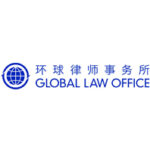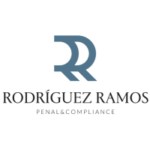-
What is the legal framework (legislation/regulations) governing bribery and corruption in your jurisdiction?
In Ukraine, the fight against bribery and corruption is governed by a comprehensive legal framework. The primary laws and regulations that establish this framework include:
- The Constitution of Ukraine – the foundational legal act ensuring the principles of legality and accountability in public service;
- The Criminal Code of Ukraine – defines criminal offences related to bribery, abuse of office, and other corruption-related crimes;
- The Criminal Procedure Code of Ukraine – regulates the investigation, prosecution, and adjudication of corruption offences;
- The Code of Ukraine on Administrative Offences (CAO) – establishes administrative liability for certain types of corrupt conduct;
- The Law of Ukraine “On Prevention of Corruption” – a key piece of legislation that sets out preventive measures, including financial disclosure, conflict of interest rules, and whistleblower protections.
Additionally, Ukraine complies with a number of international treaties and anti-corruption standards, including those set by the UN, OECD, and Council of Europe (GRECO).
-
Which authorities have jurisdiction to investigate and prosecute bribery and corruption in your jurisdiction?
Ukraine has several specialised law enforcement agencies with authority to investigate bribery and corruption-related offences. Their powers are allocated based on the status of the suspect and the nature of the offence:
1. National Anti-Corruption Bureau of Ukraine (NABU)
NABU is the primary investigative body responsible for:
- Preventing, detecting, terminating, and investigating corruption-related criminal offences committed by top officials (e.g., ministers, members of parliament, judges of the Supreme Court, heads of state enterprises).
- Its jurisdiction is limited to top-tier officials, as defined in the Law of Ukraine on the NABU and Criminal Procedure Code.
2. State Bureau of Investigation (SBI)
The SBI is responsible for investigating:
- Corruption and related crimes committed by senior public officials, law enforcement officers, and judges, as well as persons in category “A” positions under civil service legislation.
- NABU has exclusive jurisdiction over certain high-level cases; therefore, the SBI handles only those that fall outside NABU’s authority.
3. National Police of Ukraine
The National Police performs pre-trial investigations into:
- Corruption-related crimes not falling under the jurisdiction of NABU or SBI.
- It acts as the default investigative body for general corruption offences, particularly those involving mid-level and local officials or private individuals.
4. Economic Security Bureau of Ukraine ( ESBU)
ESBU is a newly established agency specialised in:
- Investigating economic crimes, including corruption in the economic and financial sectors.
- ESBU focuses on offences such as tax fraud, illicit enrichment involving economic assets, and misuse of public funds in business operations.
-
How is ‘bribery’ or ‘corruption’ (or any equivalent) defined?
Article 1 of the Law of Ukraine “On Prevention of Corruption” provides the following definitions:
- Corruption is the use by a person of the authority and powers granted to them, and the related opportunities, for the purpose of obtaining an undue advantage or accepting such an advantage or a promise/offer of such an advantage for themselves or for others.
- Undue advantage means money or other property, benefits, privileges, services, intangible assets, or any other benefits of non-material or non-monetary nature that are promised, offered, provided or received without legal grounds.
- Corruption offence means an act that contains signs of corruption and is committed by a person referred to in Part 1 of Article 3 of this Law, for which criminal, disciplinary and/or civil liability is established by law.
- Corruption-related offence refers to an act that does not contain signs of corruption, but violates the requirements, prohibitions, or restrictions established by this Law, committed by a person specified in Part 1 of Article 3 of this Law, and for which criminal, administrative, disciplinary and/or civil liability is provided by law.
Criminal Code of Ukraine
The term “bribe” is not formally used in the Criminal Code of Ukraine, but in practice, it refers to the acts provided under the following articles:
- Article 368 – Acceptance of an offer, promise, or receipt of an undue advantage by an official.
- Article 369 – Offer, promise, or provision of an undue advantage to an official.
- Article 3692 – Abuse of influence.
- Article 370 – Provocation of bribery.
Key Distinctions
- Corruption is a broader concept that includes not only bribery but also other forms of abuse of office or authority.
- Bribery is a type of corruption offence, which involves the receipt or offering of an undue advantage.
Under the United Nations Convention against Corruption (UNCAC) and the Council of Europe Criminal Law Convention on Corruption, the concept of a bribe is captured by the term “undue advantage” (Articles 15–18, 21, 25 of the UNCAC; Articles 2, 3, 7, 8, 12 of the CoE Convention).
The term “bribe” appears in the titles of certain articles of the Council of Europe Convention, but is used synonymously with “undue advantage” throughout the text.
-
Does the law distinguish between bribery of a public official and bribery of private persons? If so, how is 'public official' defined? Is a distinction made between a public official and a foreign public official? Are there different definitions for bribery of a public official and bribery of a private person?
Ukrainian legislation clearly differentiates between bribery (offering/receiving undue advantage) involving public officials and private individuals, and establishes specific definitions and legal consequences for each category.
The Criminal Code of Ukraine (CCU) distinguishes between various types of offenders, including:
- Article 368 CCU – accepting an offer, promise or receiving an improper advantage by an official;
- Article 369 CCU – proposal, promise or providing an improper advantage to an official;
- Articles 3683 and 3684 CCU – offences related to judges, prosecutors, members of parliament, etc.;
- Article 354 CCU –Bribery of an employee of an enterprise, institution or organisation.
Thus, Ukrainian law distinguishes between public and private corruption, with different legal elements and penalties applicable to each.
How is the term “civil servant” defined?
Criminal law in Ukraine uses the broader term “official”, which includes civil servants.
According to Note 1 to Article 364 of the CCU, an official is a person who:
- Permanently, temporarily, or by special authority performs functions of a representative of state or local government;
- Holds a position in state authorities, local governments, state or municipal enterprises, institutions, or organisations;
- Exercises organisational, administrative, or economic functions, or does so by special authority granted by a competent public or local body, court, or law.
Officials shall also mean officials of foreign states (persons holding positions in the legislative, executive or judicial body of a foreign state, including jurors, other persons performing state functions for a foreign state, in particular for a state body or state enterprise), as well as foreign arbitrators, persons authorised to resolve civil, commercial or labour disputes in foreign states in an alternative court order, officials of international organisations (employees of an international organisation or any other person authorised by such organisation to act on its behalf), members of international parliamentary assemblies Ukraine is a party to, and judges and officials of international courts.
The term “civil servant” is defined in Article 1 of the Law of Ukraine “On Civil Service” as a person who:
- Is a citizen of Ukraine;
- Holds a civil service position in a state body or its secretariat;
- Receives a salary from the state budget;
- Exercises powers established for the position that are directly related to the execution of tasks and functions of the respective state body;
- Adheres to the principles of civil service.
Does Ukrainian law distinguish between a civil servant and a foreign public official?
Ukrainian legislation recognises the concept of a foreign public official, particularly in the context of international conventions (e.g. the UN Convention against Corruption, ratified by Ukraine).
For example, Article 2 of the UN Convention against Corruption defines:
“Foreign public official” means any person holding a legislative, executive, administrative or judicial office of a foreign country, whether appointed or elected; and any person exercising a public function for a foreign country, including for a public agency or public enterprise.
Are there different definitions of bribery for public officials and private individuals?
Yes, both definitions and sanctions differ:
Category Criminal Code Article Subject Description Maximum Penalty Public Officials Article 368 Public official (official) Acceptance of undue advantage for actions or omissions in office Up to 12 years of imprisonment + seizure Private Individuals Article 354 Non-official person Giving a benefit to a private sector employee for influence or specific actions Up to 2 years of imprisonment or restraint -
Who may be held liable for bribery? Only individuals, or also corporate entities?
Both natural persons and legal entities may be held liable. According to Article 96-3 of the Criminal Code of Ukraine, legal entities may incur a special form of criminal liability for actions committed by their authorized representatives on behalf of and in the interest of the legal entity.
-
What are the civil consequences of bribery and corruption offences in your jurisdiction?
Civil liability for the commission of a corruption offense shall be borne by a civil servant or any other person authorized to perform state functions, for instance, in cases where such person causes physical, moral, or property damage to natural or legal persons.
- Invalidation of transactions
Pursuant to the Civil Code of Ukraine (Articles 203, 215, 228), transactions concluded under the influence of corrupt actions (e.g., provision of a bribe for concluding a contract) may be declared null and void by a court if they are executed for purposes contrary to the interests of the state and society.
Example: A public procurement contract concluded as a result of bribery of an official may be annulled. - Compensation for damages
Persons who have suffered damages as a result of corrupt actions (e.g., a company that lost a contract due to corrupt collusion between competitors and officials) have the right to seek compensation for the damages incurred through judicial proceedings (Civil Code of Ukraine, Articles 1166, 1177).
Additionally, the State may claim reimbursement from the liable persons for damages caused to the State budget. - Confiscation of assets / recovery in favor of the State
Under specific legislation (e.g., the Law of Ukraine “On Prevention of Corruption”), assets acquired through corruption may be recovered in favor of the State through civil claims.
Ukraine also applies the institution of civil confiscation of illicit assets (Article 290 of the Civil Procedure Code), which enables the seizure of assets from officials without a criminal conviction where their unlawful origin is established. - Claims by the Specialized Anti-Corruption Prosecutor’s Office (SAP) and the Office of the Prosecutor General (OPG)
The SAP and OPG are authorized to file claims seeking recognition of assets as unjustified and their recovery in favor of the State.
- Invalidation of transactions
-
What are the criminal consequences of bribery and corruption offences in your jurisdiction?
Restraint of liberty is imposed for a term of 2 to 5 years;
Imprisonment is possible for 2 to 12 years, and up to 25 years in case of a combination of sentences. The most severe penalty for obtaining/providing an undue advantage is up to 12 years’ imprisonment.
Examples of such crimes include:
- Article 368 of the CCU – аccepting an offer, promise or receiving an improper advantage by an official;
- Article 369 of the CCU – proposal, promise or providing an improper advantage to an official;
- Article 369-2 of the CCU – abuse of influence.
The penalty depends on the circumstances: the amount of the benefit, the participation of an organised group, repetition, etc.
Fines
- Fines range from UAH 17,000 to more than UAH 68,000, and in some cases are much higher.
- They may be applied together with other sanctions or instead of imprisonment, depending on the nature of the offence.
Deprivation of the right to hold positions or engage in certain activities
- The court may prohibit a person from working in government or holding a managerial position for up to 3 years.
Confiscation of property
- Confiscation of property is when all or part of a person’s property is forcibly and gratuitously seized from him or her in favour of the state. In the case of special confiscation, property used for or as a result of a crime (e.g., a bribe) is confiscated, meaning that not only the property of the convicted person but also that of other persons may be confiscated.
Inclusion in the Register of Corrupt Practitioners
- Information about a convicted person is entered into the Unified State Register of Persons Who Committed Corruption Offences, which
- Makes it impossible to hold positions in the civil service;
- Causes reputational damage;
- Impedes participation in tenders, grants, etc.
Additional consequences for officials:
- Loss of special title, rank, awards (e.g., civil servant or judge).
- Cancellation of a certificate to practice law or notary.
- Correctional labour, which citizens can perform from six months to 2 years at their place of primary employment. 10-20% of the earnings from such work goes to the state. This punishment cannot be imposed on pregnant women, military personnel, judges, prosecutors, lawyers, local government officials, civil servants, etc.
-
Does the law place any restrictions on hospitality, travel and/or entertainment expenses? Are there specific regulations restricting such expenses for foreign public officials? Are there specific monetary limits for such expenses?
Ukrainian law establishes comprehensive restrictions on the provision and acceptance of hospitality, travel, and entertainment benefits in the context of engagement with public officials, including foreign government representatives.
The Law of Ukraine “On Prevention of Corruption”( Article 23. Restrictions on receiving gifts ) prohibits public officials from accepting any gifts or benefits—including hospitality, entertainment, or travel—if:
- They may influence the objectivity or impartiality of decision-making;
- They serve as remuneration for actions already taken;
- Their value exceeds legally established thresholds.
Monetary Limits (as of 2025):
- A public official may accept a gift not exceeding the living wage for employable persons (currently UAH 3,028) per gift, established as of the date when the gift was received, a gift was accepted once, and the aggregate value of gifts received from one person (group of persons) within the year does not exceed two subsistence minimums established for able-bodied persons as of 01 January of the year when the gift was accepted, and no more than two such gifts annually from the same source.
- The aggregate value of gifts from one individual (or group) within a calendar year must not exceed four living wages (UAH 12,112 in 2024 figures).
- Gifts must not be related to official duties or come from subordinates.
Permitted Exceptions:
Under Part 2, Article 23 of the Law:
- Public officials may receive customary hospitality gifts within the limits stated above.
- Permitted items include publicly available discounts, bonuses, prizes, and awards.
- Gifts from close relatives are allowed regardless of value.
- Managers of institutions are prohibited from accepting gifts from subordinates, even within general limits.
except as provided by part 1of this Article, if the value of such gifts does not exceed the subsistence minimum for able-bodied persons, established as of the date when the gift was received, a gift was accepted once, and the aggregate value of gifts received from one person (group of persons) within the year does not exceed two subsistence minimums established for able-bodied persons as of 01 January of the year when the gift was accepted.
Foreign Public Officials:
There are no separate monetary limits for expenses involving foreign public officials. However:
- Offering, promising, or giving undue benefits to a foreign public official in order to influence their actions or decisions constitutes a criminal offence under Articles 369 and 3692 of the Criminal Code of Ukraine, with penalties including imprisonment and asset confiscation.
- Ukraine is a signatory to the UN Convention against Corruption and the OECD Anti-Bribery Convention, both of which require states to prevent and punish bribery of foreign officials, including through hospitality and related expenses.
In summary, while reasonable hospitality is permitted within defined limits, any expenses that could be interpreted as undue influence—especially in dealings with public officials—are strictly regulated and may lead to criminal liability under anti-corruption legislation.
-
Are political contributions regulated? If so, please provide details.
The political contributions in Ukraine are regulated by a transparent legal framework, which includes specific limitations and oversight mechanisms. However, the actual effectiveness of enforcement often depends on the political will and the activity of the National Agency on Corruption Prevention (NACP), law enforcement bodies, and the judiciary.
The key legal instruments governing political contributions include:
- The Law of Ukraine “On Political Parties in Ukraine”;
- The Law of Ukraine “On Prevention of Corruption”;
- The Electoral Code of Ukraine;
- The Criminal Code of Ukraine, specifically Article 159-1 (“Violation of the procedure for financing a political party, election or referendum campaigning”).
These laws set restrictions on the sources and amounts of political donations, introduce disclosure obligations, and provide for criminal liability in case of unlawful financing.
-
Are facilitation payments prohibited or regulated? If not, what is the general approach to such payments?
All forms of facilitation payments are considered acts of corruption under Ukrainian law, regardless of their amount, and are subject to criminal liability.
According to Articles 368 and 369 of the Criminal Code of Ukraine, offering or receiving any undue benefit—including money, gifts, services, advantages, or privileges—with the intent to influence the actions or decisions of a public official constitutes a criminal offense. This applies irrespective of the payment’s size or purpose.
Ukrainian law does not provide any exemptions for so-called facilitation payments, even if they are intended to expedite or simplify administrative procedures to which a person is otherwise legally entitled.
-
Are there any defences available to the bribery and corruption offences in your jurisdiction?
There is no special protection, but there is a negative attitude towards corruption in society. Implementation of financial control measures. Protection of corruption whistleblowers. Protection against bribery and corruption offences includes several key aspects. These include legal measures that provide for liability for corruption, preventive measures aimed at preventing corruption, and anti-corruption measures aimed at detecting and stopping corruption offences. In addition, public control, systematic informing of the public about the facts of the fight against corruption and transparency in the work of state bodies play an important role.
-
Are compliance programs a mitigating factor to reduce/eliminate liability for bribery and corruption offences in your jurisdiction?
Under the current legislation, Compliance Programmes are not considered as a mitigating factor in determining liability for corruption offences.
-
Has the government published any guidance advising how to comply with anti-bribery and corruption laws in your jurisdiction?
The Ukrainian government has published several official guidelines and recommendations to promote compliance with anti-corruption legislation.
The National Agency on Corruption Prevention (NACP) serves as the key authority in this area. It regularly issues methodical recommendations, clarifications, and compliance frameworks to assist both public institutions and private sector entities in implementing effective anti-corruption programmes.
Key guidance documents include:
Typical Anti-Corruption Programme: A model document approved by the NACP, which entities subject to mandatory compliance (such as state-owned enterprises and large contractors) are required to adapt and implement.
Guidelines on Identifying Corruption Risks: Methodical instructions on how to assess, document, and mitigate corruption risks in organizational processes.
Recommendations on Gift Policy, Conflicts of Interest, and Whistleblowing Mechanisms: Detailed explanations to ensure compliance with the Law of Ukraine “On Prevention of Corruption”.
-
Are mechanisms such as Deferred Prosecution Agreements (DPAs) or Non-Prosecution Agreements (NPAs) available for bribery and corruption offences in your jurisdiction?
Ukraine does not provide for Deferred Prosecution Agreements (DPAs) or Non-Prosecution Agreements (NPAs), which are used, for example, in the United States or the United Kingdom and/or similar agreements.
-
Does the law in your jurisdiction provide protection to whistle-blowers? Do the authorities in your jurisdiction offer any incentives or rewards to whistle-blowers?
Ukrainian law provides for the possibility for offenders to cooperate with the investigation in exchange for leniency or other procedural benefits. Such cooperation is regulated by the Criminal Procedure Code of Ukraine (CPC) and other legal acts.
Plea agreement “Plea deal” (Articles 468-476 of the CPC of Ukraine).
A form of procedural compromise between the prosecutor and the suspect or accused, whereby a person voluntarily admits his or her guilt in committing a criminal offence in exchange for an agreed punishment. This mechanism allows the accused to receive a more predictable and likely lighter sentence.
Possible in corruption and bribery cases, provided that:
- The suspect/accused fully admits guilt;
- The parties agree to a specific penalty;
- The agreement is approved by the court;
This mechanism:
- Allows to reduce the timeframe for consideration of the case;
- Often used in NABU, SAPO or SBI investigations;
- Does not exempt a person from liability, but may provide for a suspended sentence or a fine without imprisonment.
1. Cooperation agreement with the investigation
Cooperation agreement – may result in a plea agreement. The suspect, in addition to admitting his or her actions, provides the investigation with certain information or testimony. This allows the investigation to bring to justice a larger number of persons who are accomplices in the crime.
- Ukraine has established an institutional mechanism for whistleblower protection, which includes both legal guarantees and financial incentives.
According to the Law of Ukraine “On Prevention of Corruption” (Articles 1, 531 to 539):
A whistle-blower is an individual who has acquired reliable information about possible facts of a corruption or corruption-related offence in connection with the performance of labour, professional, economic or public duties and has voluntarily reported it.
2. Protection of whistle-blowers
The law guarantees:
- Confidentiality or anonymity of the report (at the whistle-blower’s request);
- Prohibition of whistle-blower retaliation: the employer has no right to dismiss, demote, reduce or otherwise punish a whistle-blower;
- The right to free legal aid;
- State protection, including physical protection in case of a threat to life or health;
- Compensation for damage caused in connection with a whistleblowing.
Article 53-7 of the Law of Ukraine ‘On Prevention of Corruption’: ‘In case of persecution of a whistle-blower by an employer, such actions are considered discriminatory and are grounds for judicial protection and compensation.’
3. Incentives and rewards
Yes, the law provides for material rewards for whistleblowers.
Article 536 of the Law of Ukraine ‘On Prevention of Corruption’:
If a whistle-blower has provided reliable and useful information that has contributed to the exposure of a corruption offence and, by court order, funds or property worth more than UAH 5,000,000 have been returned to the state, the whistleblower is entitled to a reward of up to 10% of the amount recovered (but not more than 3,000 minimum wages).
-
Does the law in your jurisdiction enable individual wrongdoers to reach agreement with prosecutors to provide evidence/information to assist an investigation or prosecution, in return for e.g. immunity or a reduced sentence?
Ukrainian law provides for the possibility for offenders to cooperate with the investigation in exchange for leniency or other procedural benefits. Such cooperation is regulated by the Criminal Procedure Code of Ukraine (CPC) and other legal acts.
Plea agreement ‘plea deal’ (Articles 468-476 of the CPC of Ukraine)
A form of procedural compromise between the prosecutor and the suspect or accused, whereby a person voluntarily admits his or her guilt in committing a criminal offence in exchange for an agreed punishment. This mechanism allows the accused to receive a more predictable and likely lighter sentence.
Possible in corruption and bribery cases, provided that:
- The suspect/accused fully admits guilt;
- The parties agree to a specific penalty;
- The agreement is approved by the court;
This mechanism:
- Allows to reduce the timeframe for consideration of the case;
- Often used in NABU, SAPO or SBI investigations;
- Does not exempt a person from liability, but may provide for a suspended sentence or a fine without imprisonment.
2. Cooperation agreement with the investigation
Cooperation agreement – may result in a plea agreement. The suspect, in addition to admitting his or her actions, provides the investigation with certain information or testimony. This allows the investigation to bring to justice a greater number of persons who are accomplices in the crime.
-
How common are government authority investigations into allegations of bribery? How effective are they in leading to prosecutions of individuals and corporates?
In my view, if effectiveness is assessed by the number of cases opened, anti-corruption agencies in Ukraine demonstrate a high level of activity. However, if we evaluate outcomes, the overall situation remains largely unchanged. While individual officials are being prosecuted, the systemic nature of corruption remains largely intact. This indicates that, despite institutional progress, deeper structural reforms and consistent political will are still required to achieve sustainable change.
While corruption exists in various forms in many countries, Ukraine currently faces a deeper structural challenge — the shift from genuine anti-corruption efforts toward a selective model of “expediency-driven justice.” In practice, this often manifests not as impartial enforcement, but as a targeted campaign with arrests and disregard for due process or legal argumentation. There are documented instances where courts, instead of acting as independent arbiters, appear to assist the prosecution — even to the extent of giving direct guidance during hearings on how to strengthen the case or improve the investigation. Such practices severely undermine the principles of adversarial justice and judicial neutrality.
-
What are the recent and emerging trends in investigations and enforcement in your jurisdiction?
Every country probably has and has had corruption, but in our country we are not fighting corruption, but rather turning into a country of expediency with arrests and dismissing any arguments. Moreover, judges in similar circumstances are so inventive in helping the prosecution, which they are pulling by the ears, that it is not even funny! We have cases where, right during the hearing, the presiding judge instructs the prosecution on how best to conduct the pre-trial investigation, what else they should do to prove guilt.
-
Is there a process of judicial review for challenging government authority action and decisions? If so, please describe the key features of this process and remedy.
In Ukraine, there is a clearly regulated procedure for judicial review of actions, omissions and decisions of state authorities. It is carried out within the framework of administrative proceedings regulated by the Code of Administrative Procedure of Ukraine (CAPU).
The following may be challenged in administrative proceedings:
- regulatory legal acts (e.g. orders, resolutions, instructions, etc.)
- individual decisions of state authorities;
- actions or omissions of officials;
- refusal to perform certain actions (e.g., issue a permit, accept an application, etc.).
Who has the right to go to court?
- Individuals or legal entities whose rights or interests have been violated.
- In some cases, the prosecutor’s office or other authorised entities (for example, the Ukrainian Parliament Commissioner for Human Rights).
Which court should I apply to?
- Administrative courts of first instance (district administrative courts) – consider cases against public authorities.
- The Administrative Court of Cassation within the Supreme Court – considers cases against public authorities, including as a court of first instance.
Appeal procedure: key stages
1. Preparation and filing of an administrative claim:
- Within the statutory period from the moment when the person learned or could have learned of the violation of his/her rights (the law sets individual time limits for different categories of claims);
- the form of the claim is in writing, with attachments and copies of documents.
2. Consideration of the case in the court of first instance:
- the court has the right to request evidence, summon witnesses, and examine documents;
- cases are usually considered within a reasonable time (up to several months).
3. Appeal:
- must be filed within 30 days from the date of receipt of the decision.
4. Cassation appeal to the Supreme Court:
- allowed after the appeal;
- grounds – incorrect application of the law or violation of the process.
Available judicial remedies:
- Declaring a decision or action unlawful;
- cancellation of the act or obligation of the authority to take certain actions;
- Suspension of the decision (used as an interim remedy);
- compensation for damage caused by unlawful actions of state authorities.
-
Have there been any significant developments or reforms in this area in your jurisdiction over the past 12 months?
Unfortunately, these are not reforms, but imitation. We change something, pass new laws, create bodies, but the system itself remains unchanged. And if you try to defeat corruption while leaving the corrupt mechanisms in place, you just make it more expensive.
-
Are there any planned or potential developments or reforms of bribery and anti-corruption laws in your jurisdiction?
Legislation always looks good on paper. In every country, it is adopted to regulate the relationship between citizens, business and the state. The success of any anti-corruption policy depends not so much on the texts of regulations as on how these laws work in practice.
I often hear the opinion that Ukraine’s problem is imperfect legislation. But this is not true. We have no worse laws than, say, Switzerland. Moreover, Ukrainian anti-corruption legislation formally complies with European standards. But there is a nuance: it is not enforced here. And even if it is, it is implemented selectively.
-
To which international anti-corruption conventions is your country party?
International documents that are an integral part of the national anti-corruption legislation:
- United Nations Convention against Corruption (UNCAC) (signed on 31.10.2003, ratified on 18.10.2006, entered into force for Ukraine on 01.01.2010);
- Criminal Convention on Corruption (signed on 27.01.1999, ratified on 18.10.2006, entered into force for Ukraine on 01.03.2010);
- Civil Convention on Corruption (signed on 04.11.1999, ratified on 16.03.2005, entered into force for Ukraine on 01.01.2006).
The area of preventing and combating corruption is covered by a system of international and national law, which includes the UN Convention against Corruption, the Council of Europe Criminal Convention on Corruption and the Additional Protocol to the Council of Europe Criminal Convention on Corruption, the Council of Europe Civil Convention on Corruption, and international treaties to which Ukraine is a party.
In connection with the entry into force of the Council of Europe Civil Convention on Corruption (ratified by the Law of 16 March 2005), Ukraine became the fortieth member of the Group of States against Corruption (GRECO, the so-called enlarged partial agreement of the Council of Europe) on 1 January 2006.
Ukraine is an active party to a number of international anti-corruption conventions and initiatives.
-
Do you have a concept of legal privilege in your jurisdiction which applies to lawyer-led investigations? If so, please provide details on the extent of that protection. Does it cover internal investigations carried out by in-house counsel?
Thus, in Ukraine, there is an institution of legal privilege that provides guarantees of confidentiality of communication between a lawyer and a client, in particular in the context of investigations conducted by lawyers.
Legal basis:
1. The Law of Ukraine ‘On the Bar and Practice of Law’
Article 22: ‘Attorney-client privilege’ is any information that became known to an advocate in the course of his or her professional activities, including:
- legal positions;
- content of consultations, documents, correspondence;
- any other materials related to the performance of the assignment of the Practice of Law.
- The advocate shall not be interrogated regarding the professional secrecy without the written consent of the client.
Article 23: During the search or inspection of the advocate’s home or other property, the premises where he or she carries out the practice of law, temporary access to the advocate’s belongings and documents shall be granted to a representative of the regional bar council
2. The Criminal Procedure Code of Ukraine
- Article 161: data constituting the legal privilege shall not be disclosed.
The legal privilege applies to:
- Advocate’s files, analytical materials, documents;
- Correspondence of the advocate with the client (paper and electronic);
- Information received by the advocate during an internal investigation;
- Legal advice, including oral advice.
The legal privilege does not apply to:
- to the activities, in particular, of legal advisers of companies (i.e. in-house lawyers without the status of an attorney)
- documents that do not contain signs of confidential communication (e.g., financial statements, internal company orders, etc.).
-
How much importance does your government place on tackling bribery and corruption? How do you think your jurisdiction’s approach to anti-bribery and corruption compares on an international scale?
You can fight corruption all your life, or you can live without corruption. Look, is there corruption in Switzerland, for example? Well, perhaps there is, but it is very small and there is no NABU, SAPO or HACC. Obviously, it is not the severity of punishment that prevents corruption, but certain institutional changes. That is, when you take away some powers from the state.
For example, when an official can’t decide anything, and a computer does everything, or something is transferred to private hands. Then corruption itself disappears and it is very effective. But in our country, corruption does not become less, not because someone is working badly or well, but because an official with great powers is on a meagre salary. And they are constantly exposed, but we, as citizens, are interested in the result – is it there or not?
And obviously, there is no result, because new corruption cases are emerging. That is, if there are no institutional changes, we can increase the staff of these bodies, we can create new ones or remove them altogether, we will not achieve results. You know, fighting corruption by creating new bodies is like extinguishing a fire by adding fuel to it, it makes no sense. That is why I am always worried about the creation of special bodies, that it is a process for the sake of a process, and if we do not change something systematically, it will take 50 or 100 years, and we will still be talking about the effectiveness of the fight against corruption, but we want to remove it altogether.
-
Generally, how serious are corporate organisations in your country about preventing bribery and corruption?
In Ukraine, corporate organisations are increasingly taking bribery and corruption prevention more seriously, especially in large companies, international corporations and enterprises that work with the public sector or attract foreign investment.
Criterion Score Legislative pressure Growing Institutional accountability Actively developing Voluntary business initiatives Widespread but uneven Challenges Formalism, imitation of public sector activities Trend Towards greater transparency and internal control Companies with foreign capital and large holdings usually implement developed compliance systems, integrity policies, channels for anonymous whistleblowing, and conduct regular trainings for employees. This is driven by both international standards and expectations from partners and investors.
Domestic companies, especially those involved in public procurement or interacting with regulators, are increasingly paying attention to the risks of criminal prosecution and reputational damage. Such companies are introducing anti-corruption policies, codes of ethics, and internal audits.
Small and medium-sized businesses tend to take a less systematic approach to anti-corruption measures, in particular due to limited resources and less involvement in public processes. At the same time, the understanding of risks is growing, especially among companies seeking cooperation with international donors or investors.
Public companies and companies with state participation are under increased scrutiny by both government agencies and the public, and therefore have to pay more attention to the formal side of anti-corruption policy. However, the effectiveness of such measures largely depends on the managerial will of the management.
In general, Ukrainian businesses are gradually realising that corruption prevention is not only a legal requirement, but also a tool for sustainable development, reputation protection and strengthening trust from customers and partners. At the same time, the problem lies in the actual implementation of the declared policies, effective risk monitoring and disciplinary liability for their violation.
-
What are the biggest challenges enforcement agencies/regulators face when investigating and prosecuting cases of bribery and corruption in your jurisdiction? How have they sought to tackle these challenges? What do you consider will be their areas of focus/priority in the next 18 months?
In fact, this is more of a question for me as a lawyer, as a lawyer, as a defence lawyer, so I would like to express my opinion from a professional point of view.
In my opinion, this system is dominated by expediency. That is, 3 institutions have been created – HACC, NABU, SAPO – which act to achieve a common goal. And in fact, this is not a classic system where there is a court that checks compliance with certain human rights requirements, as it should be, but they compete with the bar, shaping public opinion in such a way that they are like lawyers working for corrupt officials’ ‘dirty money’ so that corrupt officials do not receive punishment, but they are on the side of the state. This is not acceptable for the professional environment, for lawyers. We understand that this is our job, like a surgeon, who doesn’t ask who this person is, he is fighting the disease, and we are protecting the rights of the individual.
Because whoever he is, if it is a European state with laws and a Constitution, he has his own rights that cannot be violated. Our procedural opponents do not like this, and they ‘play’ on public opinion and use, in my opinion, methods that are somewhat similar to Soviet methods that should have remained in the past.
For example, a person is detained and his or her story is immediately posted on the NABU and SAPO websites with the materials of covert investigative investigative actions. And immediately there is a public outcry – they were caught red-handed, and at the bottom there is a small note ‘under Article 62, a person is not considered guilty until a court verdict is reached’, but no one reads this note anymore. The opinion has already been formed and this is actually pressure on the court.
The court, when we do not pay attention to obvious procedural errors, to violations that should lead to the inadmissibility of evidence, says, well, look at the damage caused to the state. Well, yes, if so, then there is no need for a court or a bar at all.
Let’s change the laws, the Constitution… detain a person, as in the Soviet Union, and the Troika decides his fate, shoots him and forgets about it.
Everyone says no, we are a European country, human rights must prevail. So we pay lip service to being European, but in reality we are doing what we used to do, and this is a big conflict.
Our society, unfortunately, does not understand the simple truth that while a person with a lot of money can hire the best lawyers and even they have a hard time defending their rights, no one will even talk to ordinary people when some trouble happens to them. Because human rights, regardless of whether it’s an oligarch or an ordinary person, either exist or not.
And this is the big problem. There was hope that the court would be a model of justice, but it has turned into a tool for the anti-corruption fight.
-
How have authorities in your jurisdiction sought to address the challenges presented by the significant increase of electronic data in either investigations or prosecutions into bribery and corruption offences?
In our country, in general, covert investigative (detective) actions are not conducted properly, and as a result, sooner or later, erroneous court decisions will be made. Not understanding the essence of things, courts go beyond the law, interfere with the laws of physics, solving things that are obvious to an engineer. This problem is not related to a specific case – it is large-scale.
We could end up with a situation like in the United States, when many people were exonerated after the invention of DNA testing. We just haven’t had the time for that yet.
Lawyers who speak about this are not heard. Nowadays, public opinion is crucial, not the fact that the prosecution, when collecting evidence, did everything to ensure that the offender escaped responsibility. As a result, the court bears full responsibility for such actions of the pre-trial investigation bodies.
In fact, today there are two parallel realities: in one, even a child can fake a voice, video, etc., and in the other, a respected court asks why the defence decided that the electronic evidence was fake. This is exactly what should be checked during the trial. For some reason, it is precisely in criminal jurisdiction, where the responsibility is much higher – the fate of people – that the court accepts data without an electronic digital signature as evidence. Moreover, the Supreme Court’s practice in this matter is contradictory. There are decisions of the Third Chamber and the Joint Chamber, but the most interesting thing is that these decisions assess the physics of the processes rather than addressing issues of law.
-
What do you consider will be the most significant bribery and corruption-related challenges posed to businesses in your jurisdiction over the next 18 months?
This is a very complex issue, in my opinion. Each case is unique. For example, you say that you were caught taking a bribe, but this can only be said after the court verdict. For example, there may be an acquittal in the case, or it may be closed due to time limits, etc.
Our system is generally very ‘impatient’, and this is how public opinion is formed: let’s pass sentences faster. Then the system is not needed at all. If this is a real procedure, when there is a defence, when it examines all the evidence, when every argument of one and the other side is checked, when issues related to the provocation of the crime are checked, etc.
This, of course, takes a lot of time, and it is theoretically impossible to speed it up. Well, it’s impossible to hire a million judges and hear cases every day. Neither lawyers nor prosecutors will be able to work like this – no one will be able to withstand such a load.
I believe that in this matter, the expectations of society are unjustified, as they form the opinion that everything should happen at once – today something happened, tomorrow there will be a verdict.
Moreover, this opinion is precisely shaped by such bodies as the NABU and the SAPO with their publications, because they will show something and assure that everything is obvious and clear, lawyers will now do some tricks, but we all understand that the crime took place and we will prove it. But in practice, you see that not everything is so obvious and unambiguous.
And what is provocation? Why do I see a very big problem here, first of all, a moral and ethical problem for society? Of course, if we are talking about provocation, it means that the crime took place, but someone provoked it, and if it were not for the provocation, there would be no crime.
I am sorry to say that our procedural opponents are doing this systematically, creating provocations. That is, they find a person who is somehow dependent on the NABU or the SAPO, for example, who has done something themselves, and motivate them to ‘expose’ someone.
For example, the person was not actually extorted, but he or she creates such conditions. In my practice, there was a case when a man came to his classmate and begged for help, allegedly because he was sick, his wife was also sick, he had problems at work, and thus persuaded the person to take certain actions and gave him some money for help. And he was arrested for corruption.
Is this acceptable or unacceptable? In my understanding, instead of fighting corruption, we are creating more such crimes. Well, it’s like handing out guns on the street to anyone and then watching when a person uses them illegally.
-
How would you improve the legal framework and process for preventing, investigating and prosecuting cases of bribery and corruption?
In my opinion, the problem is not in the legislation, but in the fact that the state is too actively interfering in economic and social processes. Where there is state control, there is corruption. Tax, customs and public procurement are systems that create opportunities for abuse. Where the state takes on too many functions (road construction, service administration, business control), corruption risks arise. We don’t have to look far for examples: let’s take the state post office and private logistics businesses. One works efficiently, the other does not. Why? Because where there is real competition and responsibility of the owner, the system works. The same applies to other areas. We need to transfer more functions to private hands.
Ukraine: Bribery & Corruption
This country-specific Q&A provides an overview of Bribery & Corruption laws and regulations applicable in Ukraine.
-
What is the legal framework (legislation/regulations) governing bribery and corruption in your jurisdiction?
-
Which authorities have jurisdiction to investigate and prosecute bribery and corruption in your jurisdiction?
-
How is ‘bribery’ or ‘corruption’ (or any equivalent) defined?
-
Does the law distinguish between bribery of a public official and bribery of private persons? If so, how is 'public official' defined? Is a distinction made between a public official and a foreign public official? Are there different definitions for bribery of a public official and bribery of a private person?
-
Who may be held liable for bribery? Only individuals, or also corporate entities?
-
What are the civil consequences of bribery and corruption offences in your jurisdiction?
-
What are the criminal consequences of bribery and corruption offences in your jurisdiction?
-
Does the law place any restrictions on hospitality, travel and/or entertainment expenses? Are there specific regulations restricting such expenses for foreign public officials? Are there specific monetary limits for such expenses?
-
Are political contributions regulated? If so, please provide details.
-
Are facilitation payments prohibited or regulated? If not, what is the general approach to such payments?
-
Are there any defences available to the bribery and corruption offences in your jurisdiction?
-
Are compliance programs a mitigating factor to reduce/eliminate liability for bribery and corruption offences in your jurisdiction?
-
Has the government published any guidance advising how to comply with anti-bribery and corruption laws in your jurisdiction?
-
Are mechanisms such as Deferred Prosecution Agreements (DPAs) or Non-Prosecution Agreements (NPAs) available for bribery and corruption offences in your jurisdiction?
-
Does the law in your jurisdiction provide protection to whistle-blowers? Do the authorities in your jurisdiction offer any incentives or rewards to whistle-blowers?
-
Does the law in your jurisdiction enable individual wrongdoers to reach agreement with prosecutors to provide evidence/information to assist an investigation or prosecution, in return for e.g. immunity or a reduced sentence?
-
How common are government authority investigations into allegations of bribery? How effective are they in leading to prosecutions of individuals and corporates?
-
What are the recent and emerging trends in investigations and enforcement in your jurisdiction?
-
Is there a process of judicial review for challenging government authority action and decisions? If so, please describe the key features of this process and remedy.
-
Have there been any significant developments or reforms in this area in your jurisdiction over the past 12 months?
-
Are there any planned or potential developments or reforms of bribery and anti-corruption laws in your jurisdiction?
-
To which international anti-corruption conventions is your country party?
-
Do you have a concept of legal privilege in your jurisdiction which applies to lawyer-led investigations? If so, please provide details on the extent of that protection. Does it cover internal investigations carried out by in-house counsel?
-
How much importance does your government place on tackling bribery and corruption? How do you think your jurisdiction’s approach to anti-bribery and corruption compares on an international scale?
-
Generally, how serious are corporate organisations in your country about preventing bribery and corruption?
-
What are the biggest challenges enforcement agencies/regulators face when investigating and prosecuting cases of bribery and corruption in your jurisdiction? How have they sought to tackle these challenges? What do you consider will be their areas of focus/priority in the next 18 months?
-
How have authorities in your jurisdiction sought to address the challenges presented by the significant increase of electronic data in either investigations or prosecutions into bribery and corruption offences?
-
What do you consider will be the most significant bribery and corruption-related challenges posed to businesses in your jurisdiction over the next 18 months?
-
How would you improve the legal framework and process for preventing, investigating and prosecuting cases of bribery and corruption?



















